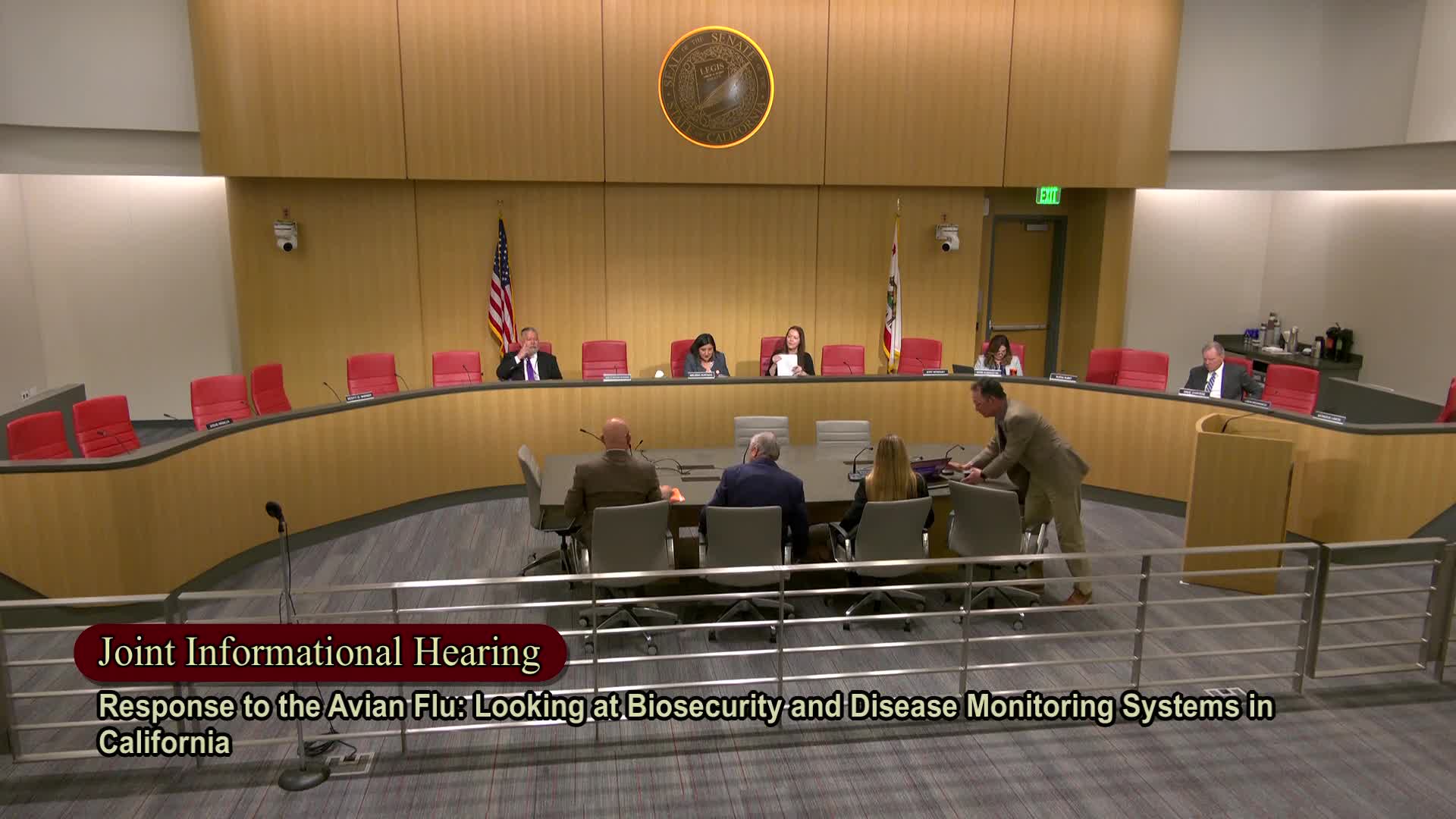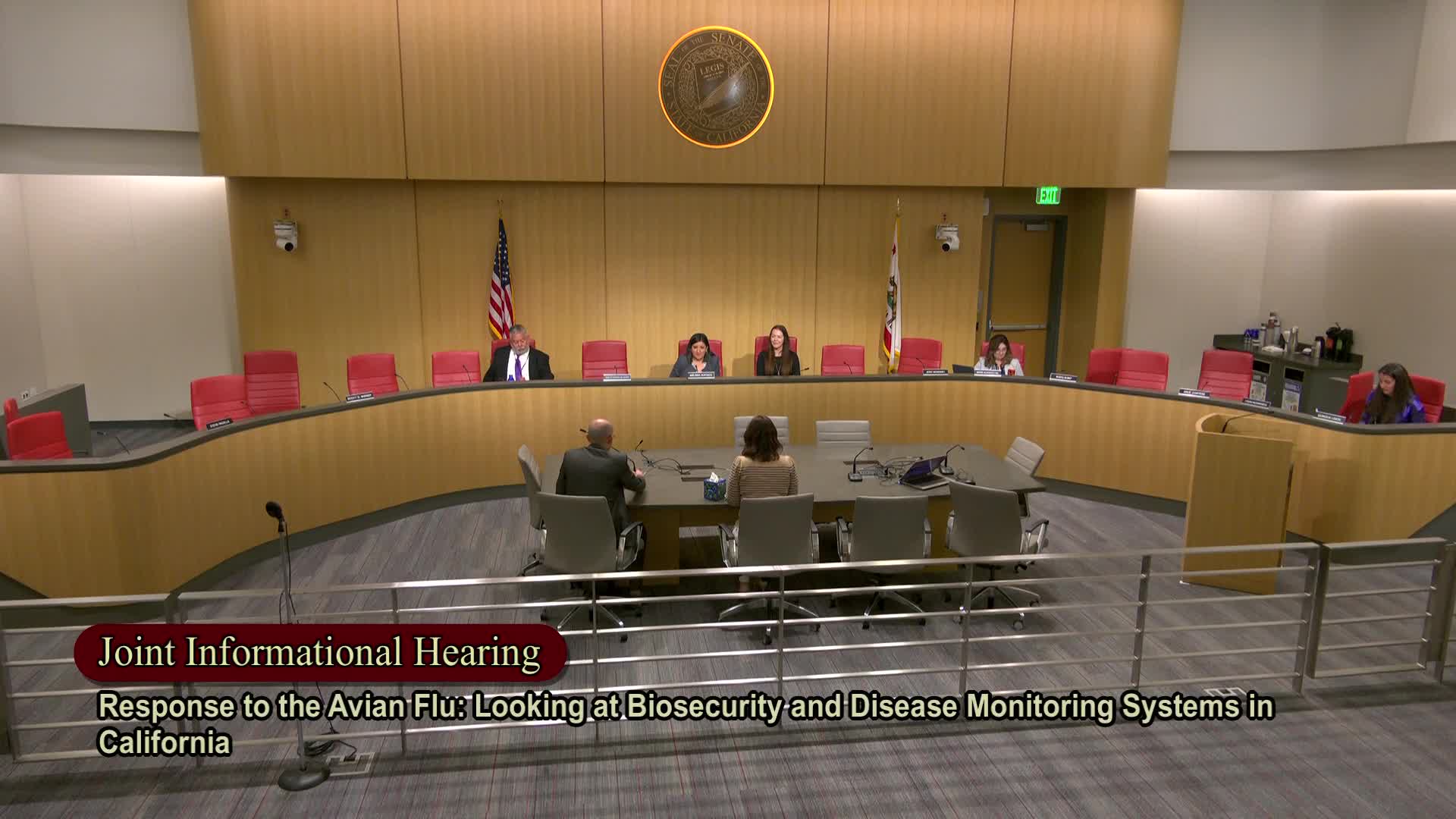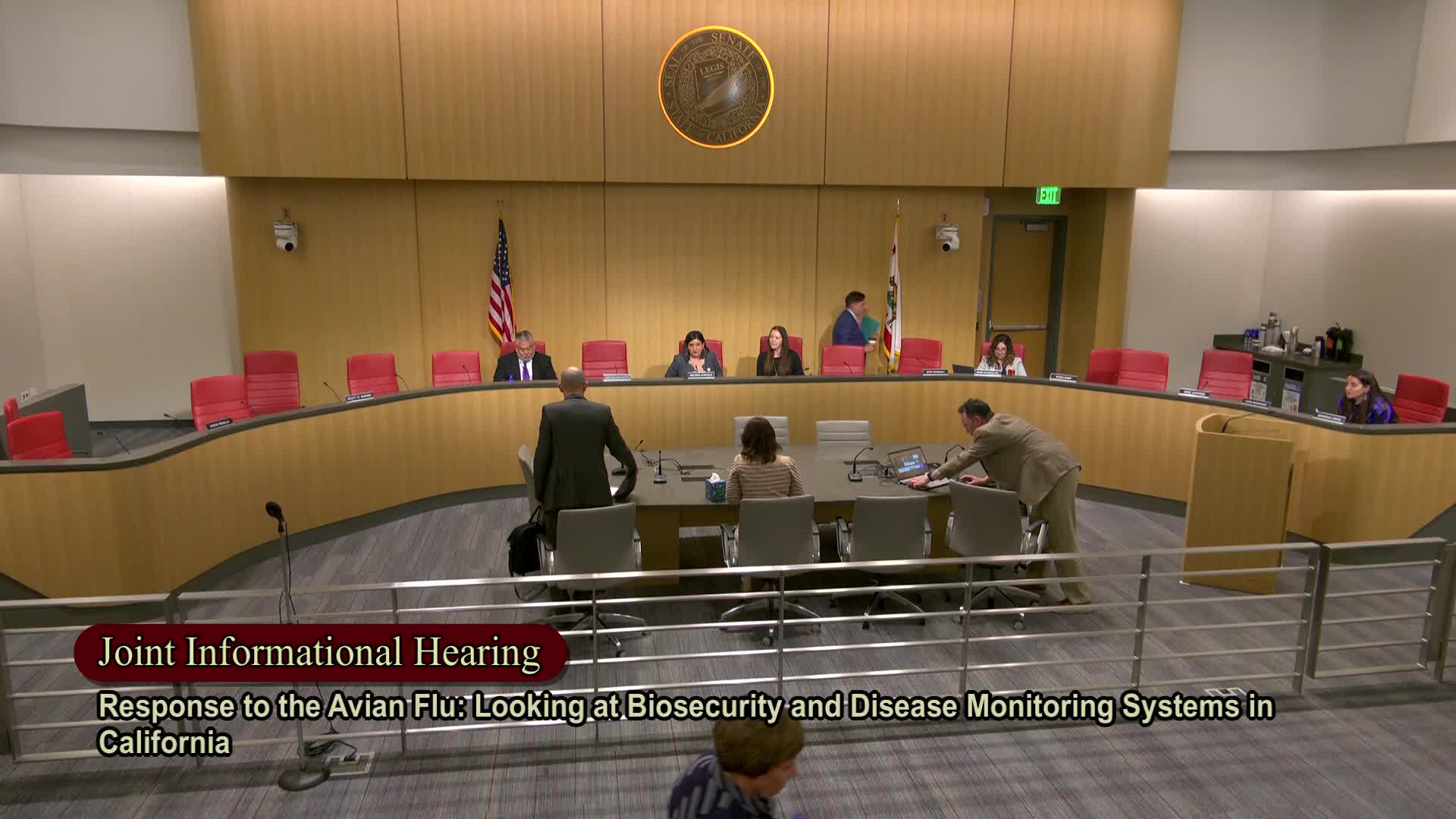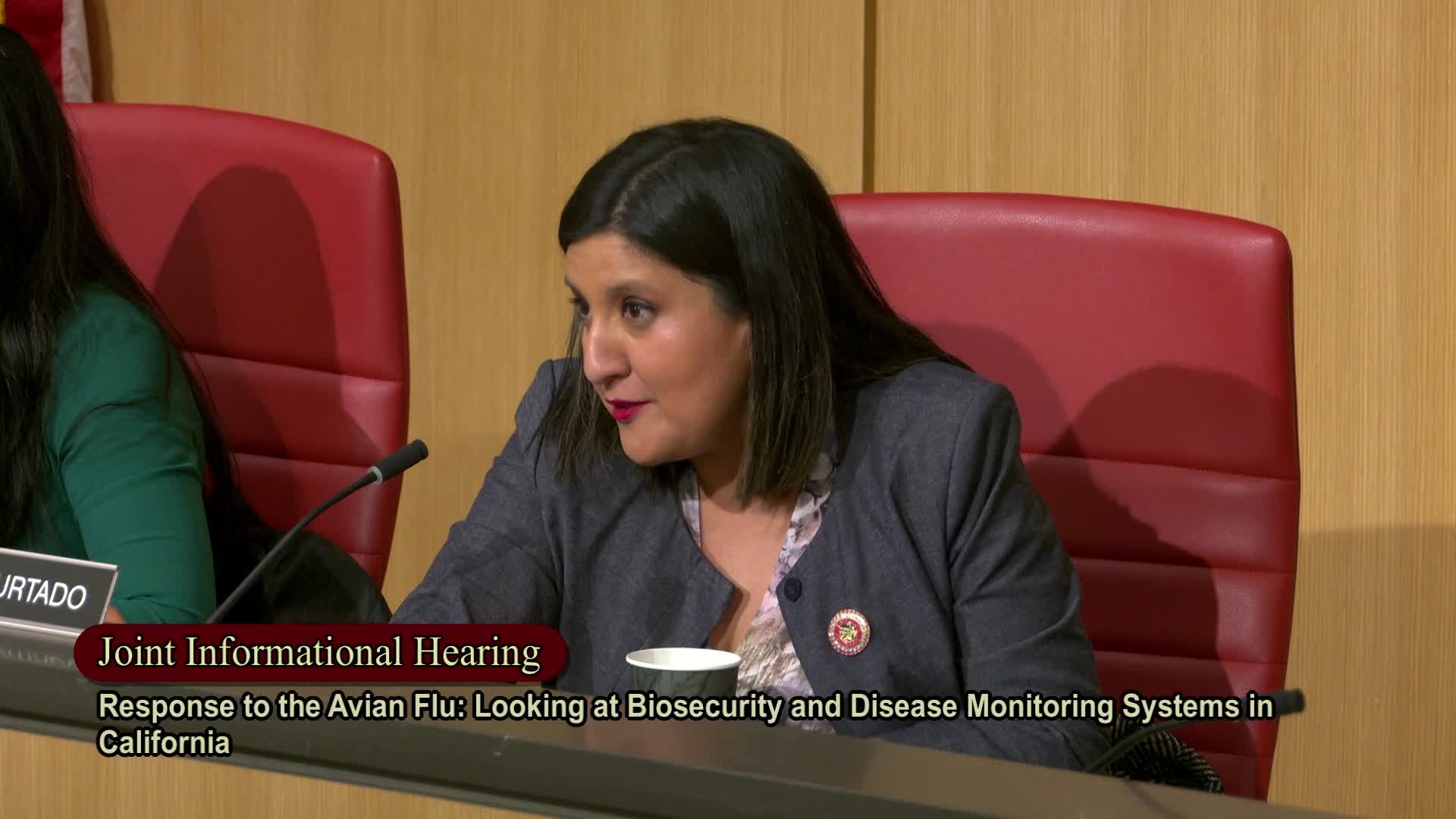Article not found
This article is no longer available. But don't worry—we've gathered other articles that discuss the same topic.

Egg, poultry and dairy producers describe large losses, slow repopulation and ask for vaccines and movement limits

UC Merced study finds gaps in dairy workplace safety; researchers recommend paid leave, testing and stronger enforcement

Tulare County details rapid local response after its first confirmed human H5N1 case

